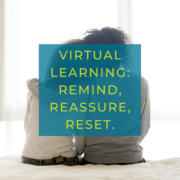National Time Management Month: Tips for Parents to Try at Home

Like children and teens, we adults are not always on top of our game when it comes to time management. As much as we would like to be productive 100 percent of the time, that is not always likely—and sometimes, just purely impossible. As we all know, people naturally tend to avoid doing things that they do not want to do. If even we adults indulge in task avoidance on occasion, it can be expected that adolescents will do the same when it comes to homework and studying. Since what occurs at home directly impacts success at school, putting time management strategies into place as a family will inevitably provide academic benefits in the long run.
Help your child to categorize, then prioritize. It sounds simple enough—just as we plan our errands or to-do lists in a logical, timely, and practical manner, so should your children when they are prioritizing their assignments. However, students with executive functioning deficiencies may find this style of logical order or planning to be exceptionally difficult.
For example, if you know that you need to go to the gym, fill up the gas tank, and go grocery shopping, there is a logical order of operations: gas first, in order to drive, gym, then groceries. Any other means of organizing your errands would leave you stranded on the side of the road or with a car full of spoiled food. Logical? Yes. But easy for all adolescents to grasp? No. They will need your help to prioritize and logically plan their assignments and after–school obligations. Show them how to assess the time it will take to complete all items of the to-do list. Help them to identify the difference between tasks that are time-consuming versus difficult. If a task is both time-consuming and difficult, it should likely take top priority.
Encourage productivity and effort with bonus slots for free time or weekend activities. Intrinsic motivation is the end goal. But, until that mindset kicks in, it is more than okay to negotiate, praise, or reward hard work. If you notice that your child has spent extra time and effort on a research project, perhaps consider shelving the week’s chores. If your teen has submitted all of her school assignments on time, treat her to a movie of her choice or additional screen time before bed.
Lead by example. When you are asking your child to put down the phone and work, you should try to do the same. Grab a book or catch up on some work while your teen hits the books. Not only are you setting an example, but you are also ensuring that you are not contributing to distractions. Talking on the phone, watching television, or scrolling through social media sends a conflicting message—“you should be working, but I do not have to.” Instead, share in the quiet, productive work time.






